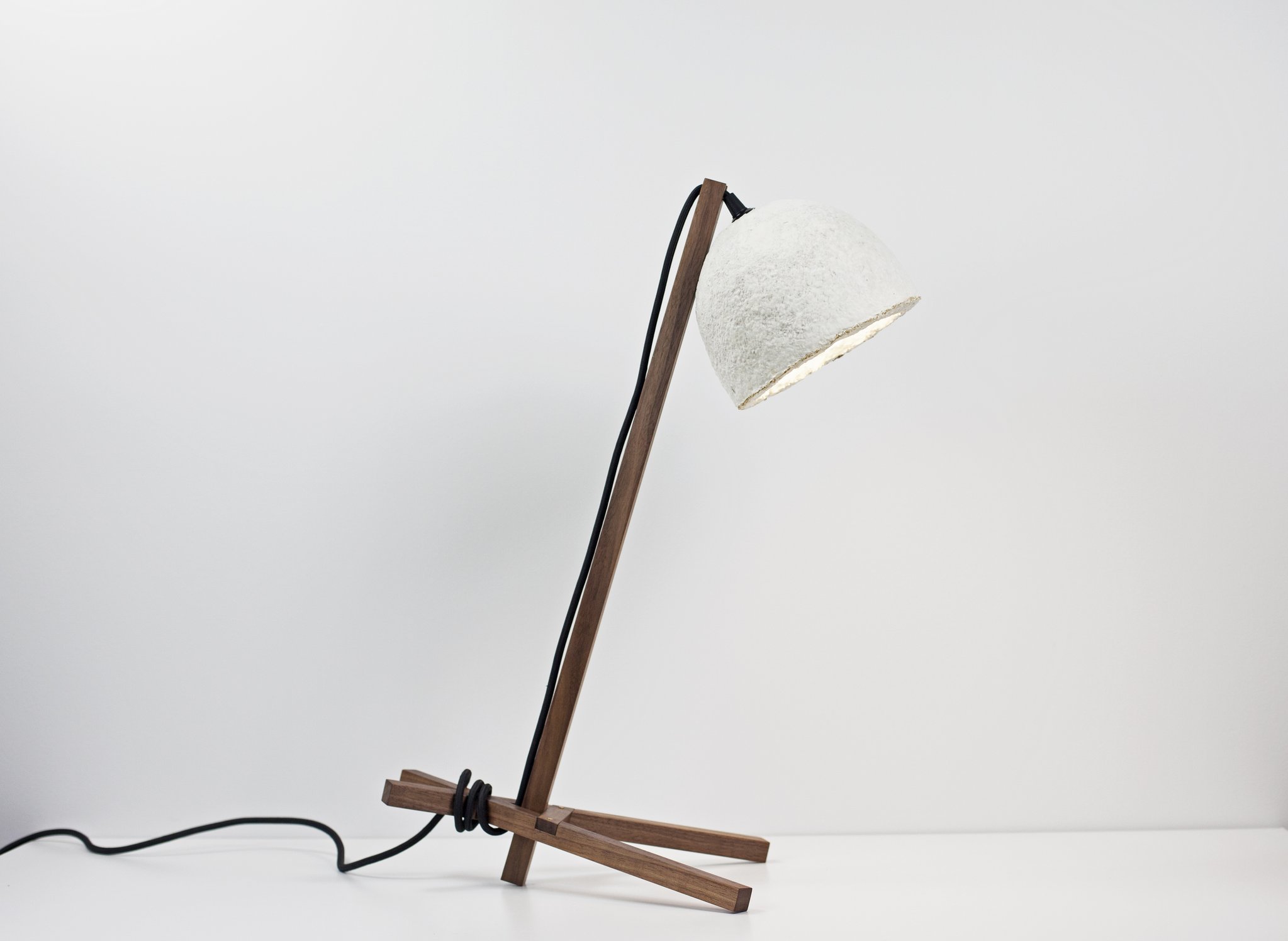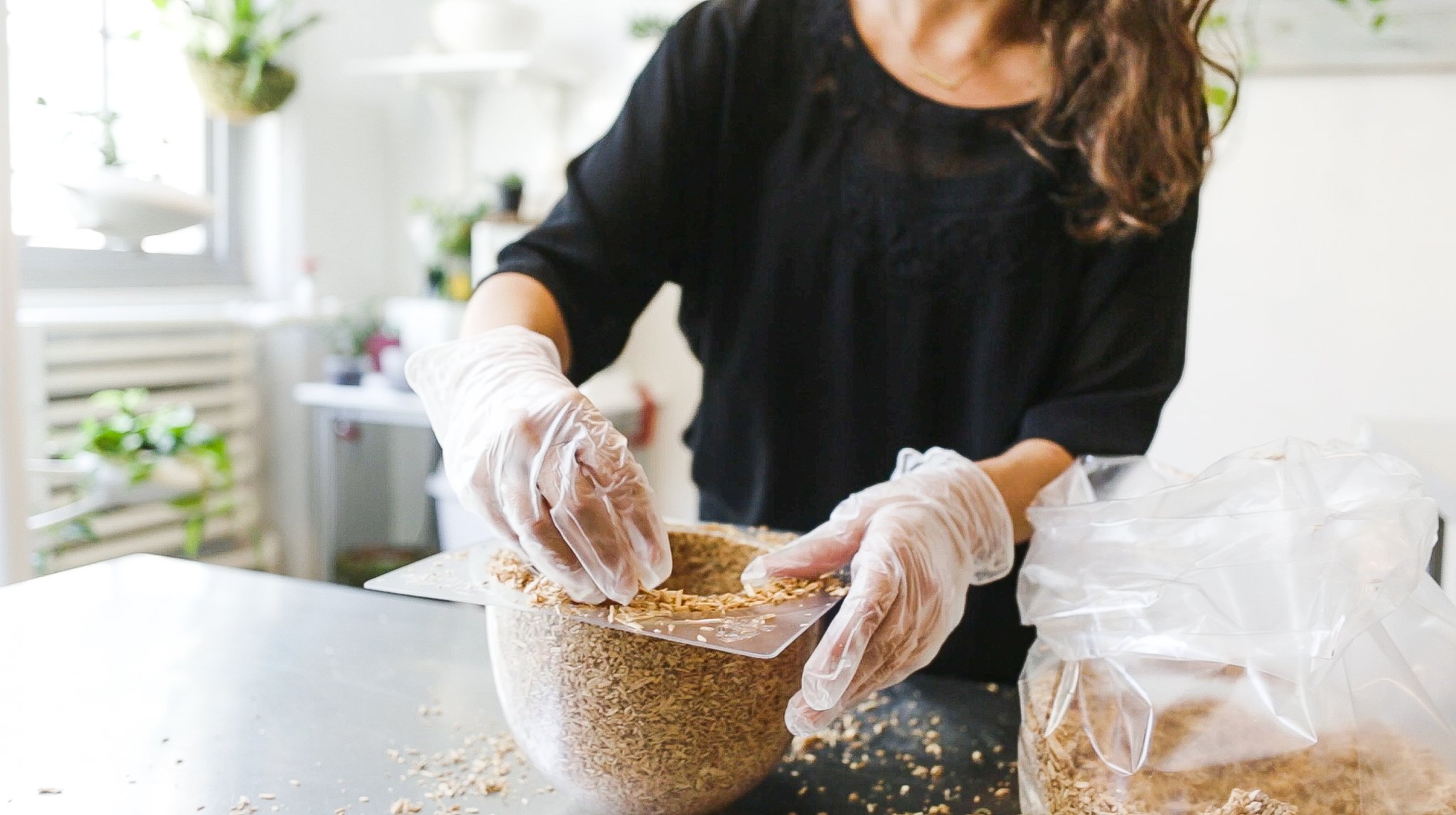Shining a Light on Bio-fabrication
GROW lamp table lamp source: flowandchaos.com
In Brooklyn, there’s a studio called Trofe, where change is brewing or should we say change is growing. Danielle, the founder and namesake of Trofe has been working on a range of lights grown from fungus.
The process of using fungus as a manufacturing technique is called bio-fabrication. This process involves mixing bio-waste like dried corn stalks or seed husks and then bringing in mushroom spores along with plenty of water to create a nice fungus-friendly environment. The fungus will then grow to create a support structure out of mycelium which forms the matrix in this composite, the fungal mixture is then dried out to prevent further growth and sporing.
GROW kit being used to make a lampshade source: flowandchaos.com
Danielle has integrated bio-fabrication into lighting design as a world's first for lighting with her Mush Lume line of premium lighting fixtures. The dead fungus makes up the lampshade with traditional metal and wooden fixtures making up the rest of lamp.
If you’re a more hands-on kind of person you can even take the growth into your own hands with the less premium GROW lamp kits. The kits come with moulds to grow your mycelium into the desired shape. Creative liberty could be taken here with the mycelium happy to form into any shape you can mould it into.
Trofe isn’t alone in using mycelium, there are other designers doing awesome things with the fungus. David Benjamin used the biomaterial to create the bricks in a temporary structure for the New York Moma ps1 summer exhibition. While Eric Klarenbeek has been 3D printing the mycelium into furniture creating bizzare organic shapes.
Eco packaging by Ecovative source: www.telegraph.co.uk



